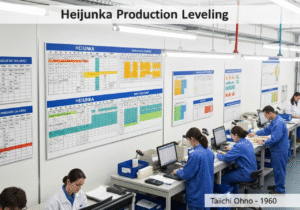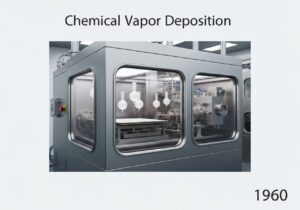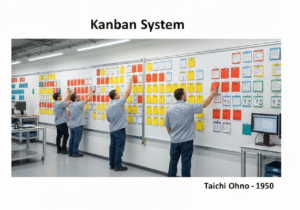A fabricación management process that uses advanced mathematical algorithms to optimize the allocation of raw materials and production capacity.
- Metodologías: Clientes y marketing, Ideación, Diseño de producto
Planificación y programación avanzadas (APS)

Planificación y programación avanzadas (APS)
- Mejora continua, Eficiencia, Manufactura esbelta, Fabricación, Optimización de procesos, Eficacia de la producción, Cadena de suministro, Mapeo del flujo de valor
Objetivo:
Cómo se utiliza:
- APS systems are used to plan and schedule production based on real-time data, considering constraints such as material availability, machine capacity, and labor resources.
Ventajas
- Improves production efficiency, reduces lead times, and enhances visibility into the supply chain.
Contras
- Can be complex and expensive to implement, requires accurate data for effective planning, and may not be suitable for all manufacturing environments.
Categorías:
- Economía, Fabricación, Gestión de proyectos
Ideal para:
- Optimizing production planning and scheduling in complex manufacturing operations.
Advanced Planning and Scheduling (APS) methodologies find wide-ranging applications in industries such as automotive, aerospace, consumer electronics, and pharmaceuticals, where high levels of customization and varying production volumes are common. These systems enable real-time decision-making, allowing manufacturers to adapt to fluctuations in demand, changes in order sizes, or material shortages. For example, an automotive manufacturer can implement APS to optimize the assembly line by analyzing data on part availability, scheduling maintenance for machinery during non-peak hours, and reallocating labor based on urgent requirements for different production stages. The initiation of APS projects typically involves cross-functional teams that include supply chain managers, operations personnel, and IT specialists, fostering collaboration and collective input in the planning phases. Implementation may occur during the initial design stages of a product, where aligning supply chain capabilities with production workflows can significantly influence product launch timelines and cost efficiency. Data integration from various sources like Enterprise Resource Planning (ERP) systems and Customer Relationship Management (CRM) systems empowers APS to provide a comprehensive overview of production metrics, improving operational transparency. The incorporation of advanced analytics, including machine learning algorithms, facilitates predictive modeling which further enhances scheduling accuracy by anticipating potential disruptions in supply chains or production delays.
Pasos clave de esta metodología
- Define production goals and priorities based on strategic objectives.
- Map out the production processes and identify dependencies.
- Develop a capacity model to assess machine and labor resource utilization.
- Implement real-time data collection systems for monitoring production metrics.
- Utilize optimization algorithms to generate feasible scheduling options.
- Incorporate constraints such as material availability and lead times into the model.
- Simulate different scheduling scenarios to evaluate performance outcomes.
- Analyze the impact of proposed schedules on resource allocation and throughput.
- Adjust schedules dynamically based on real-time feedback and unexpected events.
- Continuously refine the scheduling process through iterative testing and validation.
Consejos profesionales
- Utilize predictive analytics to forecast demand fluctuations, allowing for dynamic adjustments to production schedules that reflect real-time conditions.
- Implement a continuous feedback loop within APS systems to refine algorithms and improve decision-making, enhancing responsiveness to unexpected changes.
- Integrate machine learning techniques to analyze historical data patterns, enabling better utilization of resources and proactive identification of potential bottlenecks.
Leer y comparar varias metodologías, recomendamos el
> Amplio repositorio de metodologías <
junto con otras más de 400 metodologías.
Sus comentarios sobre esta metodología o información adicional son bienvenidos en la dirección sección de comentarios ↓ , así como cualquier idea o enlace relacionado con la ingeniería.
Contexto histórico
1949
1950
1950
1960
1960
1960
1960
1940
1950
1950
1958
1960
1960
1960
1960
(si se desconoce la fecha o no es relevante, por ejemplo "mecánica de fluidos", se ofrece una estimación redondeada de su notable aparición)















Publicaciones relacionadas
Cuestionarios sobre molestias musculoesqueléticas
Pruebas multivariantes (MVT)
Análisis de regresión múltiple
Sistemas de captura de movimiento
Método MoSCoW
Prueba de la mediana de Mood